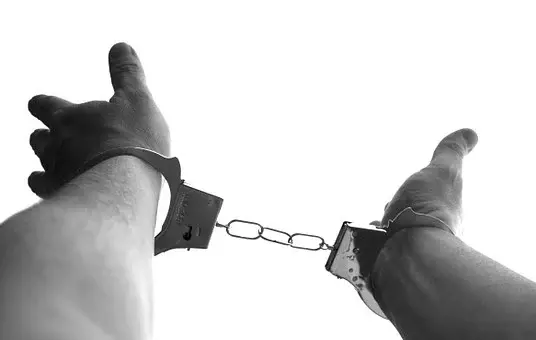Comments
- No comments found

The use of prison labor by U.S. companies is nothing new.
However, what is new is the pervasiveness of the practice and the magnitude of profits being generated from it.
Prison labor is currently a big business in America.
Just how big is prison labor in the U.S.? In 2013, the Corrections Corporation of America (CCA) made over $1.7 billion in revenue. That same year, Wal-Mart earned $17 billion in profits.
What is interesting to note is that Wal-Mart's revenues are derived from its 6,000 stores across the U.S. In contrast, CCA's revenues are derived solely from its prisons which begs the question: how can a company make so much money from something that is morally and ethically questionable?
There are several ethical concerns with prison labor.

The first issue is that prisoners are being exploited for their labor. Prisoners are paid pennies per hour if they receive any at all. In some cases, they are not paid at all, which is in stark contrast to the $7.25 federal minimum wage.
The fact that prisoners are being forced to work for next to nothing is appalling. The pay of prisoners is also of concern because it does not reflect the actual market value of their labor.
These economics are widely beneficial for CCA and big businesses, which would never sustain a profit on its own.
In addition, the working conditions for prisoners are often deplorable. They may be forced to work in extreme temperatures (heat and cold) and unsafe conditions with little to no protection.
A prisoner is basically his identification number to a private prison entity. You can use the number to get information from inmates about their working conditions.
Unlike typical private companies, prisons do not have to comply with OSHA standards. When prisoners are injured on the job, they often receive little or no medical attention for their injuries.
The U.S. incarcerates more people than any other country globally, and it has the highest percentage of incarcerated individuals (primarily due to its War on Drugs). There is a clear incentive for states to detain as many individuals as possible, and one way this is accomplished is through privatization.
Privately run prisons need prisoners to turn a profit, which is done by passing laws that incentivize incarceration and criminalization (i.e., the War on Drugs).
In addition, companies such as CCA lobby government officials to maintain high incarceration rates through lobbying efforts and donations. Many state judges are elected officials who rely upon political donors to get re-elected.
Private prison companies donate generously to political campaigns to curry favor with state officials. Doing so creates an apparent conflict of interest, as the judges are then more likely to sentence people to prison, which benefits the private prison company.
Another issue with prison labor is that prisoners often produce low-quality and dangerous products. These products are often defective and can cause serious injury. In some cases, the products that prisoners make have even caused death.
Product quality is an issue because prison labor has a slight economic incentive to produce quality goods. These products are not sold in a competitive market, as most prisons have monopolies on their goods and services.
There is no reason for them to care about customer satisfaction or product quality. They can sell whatever they want without any real repercussions, which causes serious safety concerns for both the prisoners and the public.
There are several ethical concerns with prison labor. Prisoners are paid pennies per hour, often work in unsafe conditions, and are forced to produce low-quality and dangerous products.
In addition, there is a conflict of interest when judges rely upon private prison companies for donations which creates an incentive to incarcerate more people, which ultimately benefits the private prison company. Countries must address these issues to ensure that prisoners are treated fairly and that the products they produce are safe for the public.
Leave your comments
Post comment as a guest